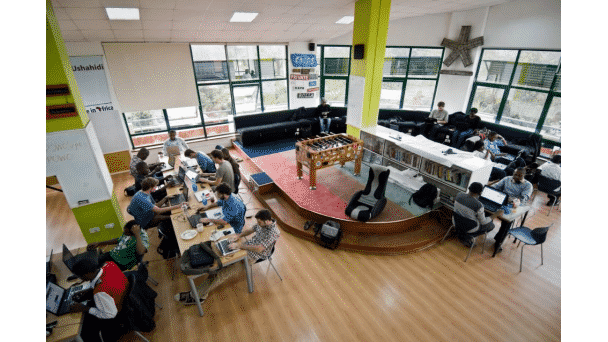Following up on our article about the blossoming startup scene in Nairobi, Kenya, we’ve compiled a list of 5 promising Kenyan startups with a quick description of what they do.
1. iCow
iCow is an Agricultural Information Service SMS mobile phone application designed to help enhance the productivity of small-scale dairy farmers in Kenya. Aiming to help rural communities and farmers by giving them knowledge to develop as both farmers and businessmen, each farmer enters personalized details about their cows – whether that may be five or 500 – before receiving text messages and voice prompts with tailored instructions about the breeding and production patterns of their livestock. It helps farmers manage their stock and tackle challenges by tracking the estrus stages of their cows, providing the cost per liter of milk produced by their animals, helping them find the nearest vet and AI providers, and by giving information on breeding, nutrition, milk production efficiency and gestation, fodder production, hygiene and animal diseases. Following the 365-day cow cycle, farmers are assisted year round in making informed decisions and reducing risk.
The app runs on even the most basic mobile phone, and each text message costs about 10 Kenyan shillings, or $0.10.

2. Zatiti
Launched in 2013, Zatiti is a web platform which helps entrepreneurs create e-commerce websites (which are M-PESA compatible). 81% of sellers in Kenya are looking for a mobile e-commerce solution to reach the 98% of Kenyans who access the web through mobile devices, but coders and developers are hard to find. The Zatiti platform requires no technical expertise from customers, handling everything from set-up to the design of customized themes. And clients can easily update their platforms with the website builder’s simple content management system. Empowering entrepreneurs, users can also monitor revenue and sales orders, and receive messages through the service.
Zatiti charges a 2% transaction fee and a monthly subscription fee depending on type of plan, along with offering premium templates, increased storage space, and increased product variety.

3. Soko
Soko is a mobile driven e-commerce platform that enables artisans to engage with the international marketplace, even if they lack access to the internet or a bank account. In a similar mold to Etsy, Soko works with artisans to create modern, ethical jewelry, handmade from sustainable materials, and then helps them to sell their products to a global audience of brands, retailers, and online customers around the world. Its niche: all that can be done via only SMS. An SMS entry form allows artisans to create online storefronts, profiles, and upload images. As they text the information is transcribed as metadata which is automatically uploaded to the Soko website. It uses a peer recruitment model whereby store owners recruit and mentor new sellers. Soko says: “With our tools, any talented artisan can participate in the global marketplace, becoming a driver of social and economic development in their community.”
Based in Nairobi, so far the company has 12 employees around the world, about 250 artisans currently featured on the site, and has raised close to $1 million in seed funding.

4. M-Farm
M-Farm is a SMS mobile phone application, compatible with even basic mobile phones, which aims to empower African farmers. M-Farm cuts out the middle man by connecting farmers directly with buyers. It provides them with real-time food pricing information, allowing them to sell their produce at much fairer prices. Making small farmers more visible, it offers a group selling tool where farmers can team up to bring their accumulated produce to drop off points and the SMS system then promotes what they have to sell. And it offers a group buying tool, allowing farmers to pool resources to get better prices for things like fertilizer. Kenyan CEO and founder Jamila Abass says she founded MFarm in 2010 after reading about how farmers have been “oppressed for decades and disconnected in terms of information”.
A SMS for a single crop is the cost of a text message. The company counts nearly 17,000 users in Kenya, and projects one million by the end of next year.

5. SokoText
SokoText uses mobile phone text messages to aggregate demand for food in Kenyan slums and unlock wholesale prices for micro-entrepreneurs. The company says “Small-scale vegetable sellers and kiosk owners are the gatekeepers and key players of food accessibility in urban slums. Yet a lack of capital means that they cannot afford to buy in bulk and pay to travel long distances to markets every day to buy just enough stock that will help them get by. SokoText leverages the widespread and increasing use of mobile phones in slums to solve these problems. With SokoText, they can boost their business while becoming the key agents that empower people living in the slums to eat better and healthier.”





